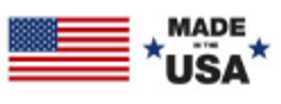If you’ve been struggling with masks, this might be the alternative you’ve been looking for
Reposted from Cleveland Clinic
Will a Face Shield Protect You From the Coronavirus?
We’ve been doing the mask mambo for months now. Some of us can wear them effortlessly while others…ehhh, well. Let’s just say this new accessory has added a little frustration to some of our daily activities. But whether we like it or not, masks aren’t going away anytime soon.
What’s the alternative to foggy glasses, dragon breath, a mask that travels all over your face or just being a hot, sweaty mess all the time? If you aren’t afraid to stand out in a crowd and don’t mind taking a bolder route when it comes to personal protective equipment options, a face shield might be the way to go.
What is a face shield?
During the early days of the pandemic, we all probably laughed at images or videos of people who were wearing plastic water jugs on their heads or putting pot lids in the front of their hoodies to protect themselves from COVID-19. Well, despite their viral moments, those people were kind of on to something.
Face shields have been used in healthcare settings for a while now. They recently became a staple for medical personnel who have to intubate patients with COVID-19. But face shields are often worn during a wide variety of medical procedures. This includes surgeries or any procedure where bone fragments, blood or other bodily fluids could get into the eyes, nose and mouth.
A face shield is simply a curved plastic or Plexiglas panel that can be worn over the face. If you’re having a hard time picturing one, think of those old-school transparent visors that you might have rocked in the summer — or a new-school music festival visor that you rock now. A face shield is kind of like that, except the visor part slants down to cover your face and extends slightly beyond the chin.
“Because they extend down from the forehead, shields protect the eyes as well as the nose and mouth,” says pediatric infectious disease specialistFrank Esper, MD. The coverage that face shields offer is ideal since the new coronavirus can enter the body through those points.
Are face shields effective?
A 2014 study showed that when tested against an influenza-infused aerosol from a distance of 18 inches away, a face shield reduced exposure by 96% during the period immediately after a cough. The face shield also reduced the surface contamination of a respirator by 97%.
“It protects you, the wearer,” Dr. Esper says. “But if you cough, because this face shield is away from your face, those droplets can still get out better than if you have a mask on.”
What are the advantages of wearing a face shield?
If you’re tired of struggling with a mask or don’t enjoy having a pocket of hot air on your face for long periods of time, a face shield offers protection and the sweet relief of fresh air. “You don’t get to feel the breeze on your face, but you do get some fresh air, rather than trying to breathe through a cloth mask,” says Dr. Esper. It’s also easier to talk and most importantly, people can still see your face during interactions.
Another plus? Not having to adjust anything.
With masks, we feel the need to touch our faces more. We also find ourselves adjusting them or even pulling them down to talk to people (which we shouldn’t do). Face shields take all of this out of the equation. Most styles are attached to an elastic headband and are easy to wear. You can even wear glasses (minus the fog) or hats with them.
Face shields are reusable, reasonably priced and easy to clean. Dr. Esper suggests cleaning them with an antibacterial wipe or soap and water.
What are the disadvantages of wearing a face shield?
As mentioned earlier, masks absorb droplets when we sneeze or cough. Face shields don’t. Dr. Esper stresses that should you decide to wear a face shield, you’ll need to sanitize it frequently.
“We know this virus likes to live on plastic a lot better than it likes to live on porous materials like cloth, paper or cardboard,” he says. So again, clean your face shield once you take it off. You can sterilize it with an antibacterial wipe, alcohol pad or good old soap and water.
Do you need to wear a face shield and a face mask together?
While surgeons and other skilled medical professionals wear face shields over face masks, it’s not necessary for the average person to do so. However, it’s good to keep social distancing guidelines in mind when wearing your face shield in public to maximize its effectiveness.
If your face shield cracks or becomes damaged, don’t continue to use it. Many places offer face shields in bulk. This makes it easier for you to pitch the damaged face shield and move on to the next one.
Reposted from: Cleveland Clinic


